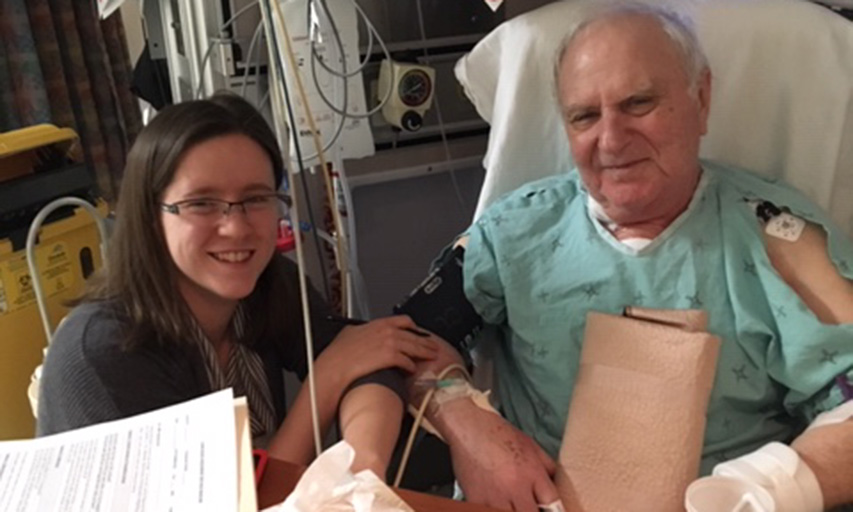Clinical Research

Clinical trials are essential to advancing healthcare by developing new therapies and approaches to patient care and treatments. Participants in clinical trials are critical to the success of our research. They kindly volunteer their time to help us discover novel and preventative treatments and approaches that may help improve the future of healthcare.
Learn about our clinical studies and how to participate, below.
PROMOTE
About the study
Patients may be eligible for a clinical trial that investigats cognitive screening before surgery to identify those who may be at risk for delirium and decline in thinking and memory after surgery and promotes effective non-pharmacological intervention strategies to patients, caregiver, and healthcare providers.
This project aims to prevent both the incidence and severity of postoperative delirium, a serious neurological complication common in older surgical patients, by optimizing preoperative assessment procedures with the potential to prevent delirium.
What is involved
One to two weeks before surgery, participants will be asked to complete a short test measuring thinking and memory, and answer two questionnaires over the phone. Patients at a high-risk of delirium will be directed to the Direct-to-Patient Education program (DPEP) which provides educational materials about delirium prevention for patients, family members and caregivers. The patient’s high-risk for delirium will also be noted with doctors and nurses attending surgery. For the first three days after surgery, patients will fill out a short questionnaire to help test for delirium and the impact of prevention and education strategies.
Eligibility:
- Patients who are 60 years and older.
- Undergoing major elective surgery with a planned postoperative stay of at least one night.
- Not undergoing a heart or brain surgery
How to participate:
If you are interested in participating or would like more information, please contact the anesthesia research team at 416-480-6100 ext. 689607 or by email at anesthesia.research@sw.ca.
CODEX
About the study
Patients may be eligible for a clinical trial testing a drug to reduce the incidence of persistent cognitive dysfunction after open cardiac surgery.
The CODEX study aims to investigate and potentially identify a treatment for postoperative cognitive dysfunction (POCD) which continues after a patient leaves the hospital and anticipated surgical recovery. The use of dexmedetomidine could lead to improved patient care, shorter hospital stay, and reduced costs at cardiac centres across Canada.
What is postoperative cognitive decline (POCD)?
POCD is characterized by reduced cognitive function (memory and executive function) after surgery. The highest risk of cognitive decline is linked to cardiac surgery.
What is dexmedetomidine?
Dexmedetomidine (DEX) is an approved sedative used in the Operating Room or Intensive Care Unit. It reduces delirium in the postoperative intensive care setting.
What is involved?
Participants are randomly assigned (a 50:50 chance) to receive dexmedetomidine as one of their medications in the ICU up to 24 hours after surgery, or to receive the conventional standard medications. Dexemedtomidine is approved by Health Canada to be used as a sedative in the intensive care unit and we are using this drug within its approved guidelines. DEX is known to decrease the chances of developing delirium.
Our study is investigating whether dexmedetomidine can help prevent POCD. Since we know that this sedative helps prevent delirium, that may help prevent cognitive dysfunction after surgery. Participants will also be asked to complete cognitive tests before and after surgery, both in the hospital and after going home, with follow-up occurring three, six, and 12 months after surgery.
Eligibility:
- Patients who are 60 years and older.
- Scheduled for heart surgery including valve replacement and/or coronary bypass
How to participate:
If you are interested in participating or would like more information, please contact the anesthesia research team at 416-480-6100 ext. 689607 or by email at anesthesia.research@sw.ca.



